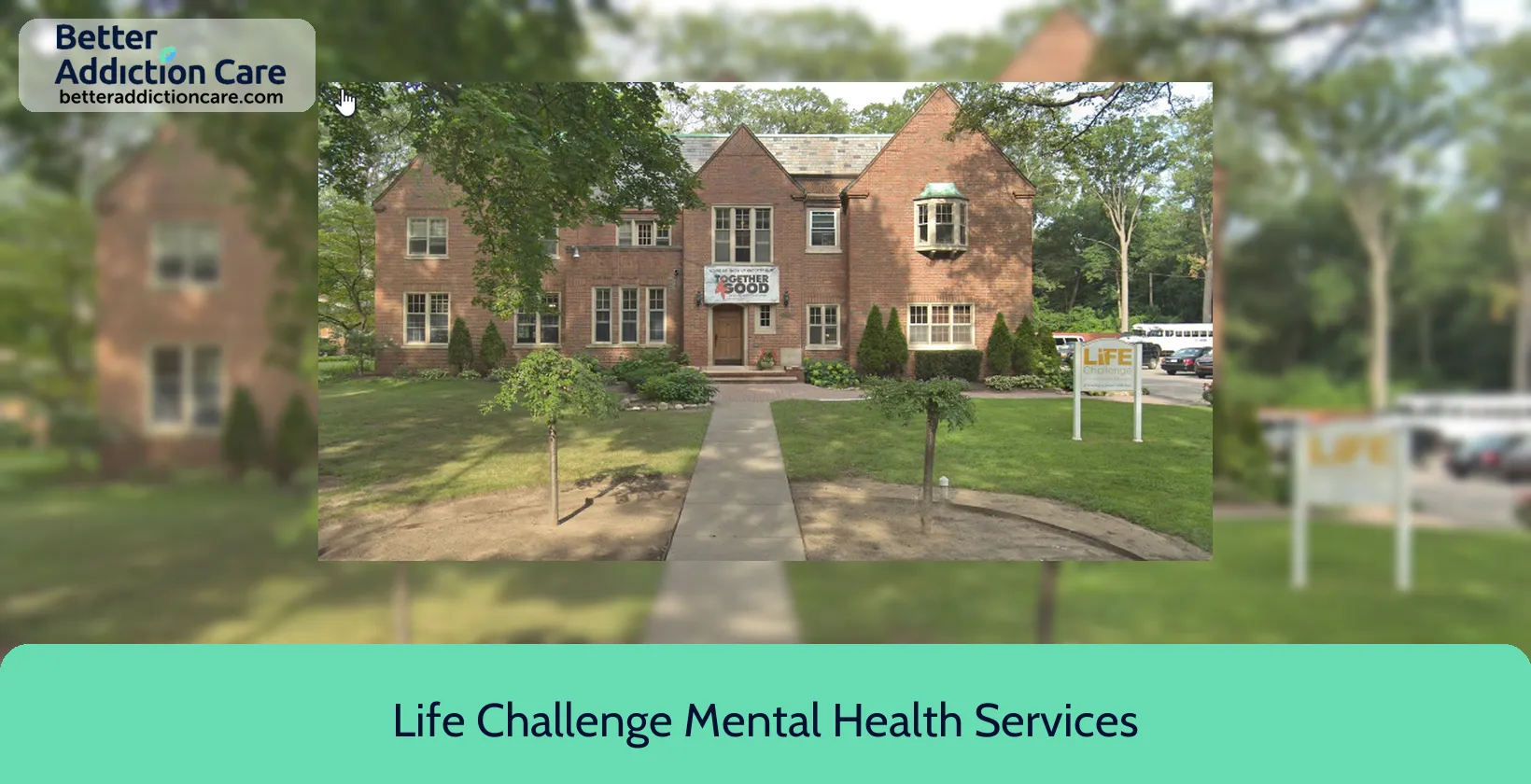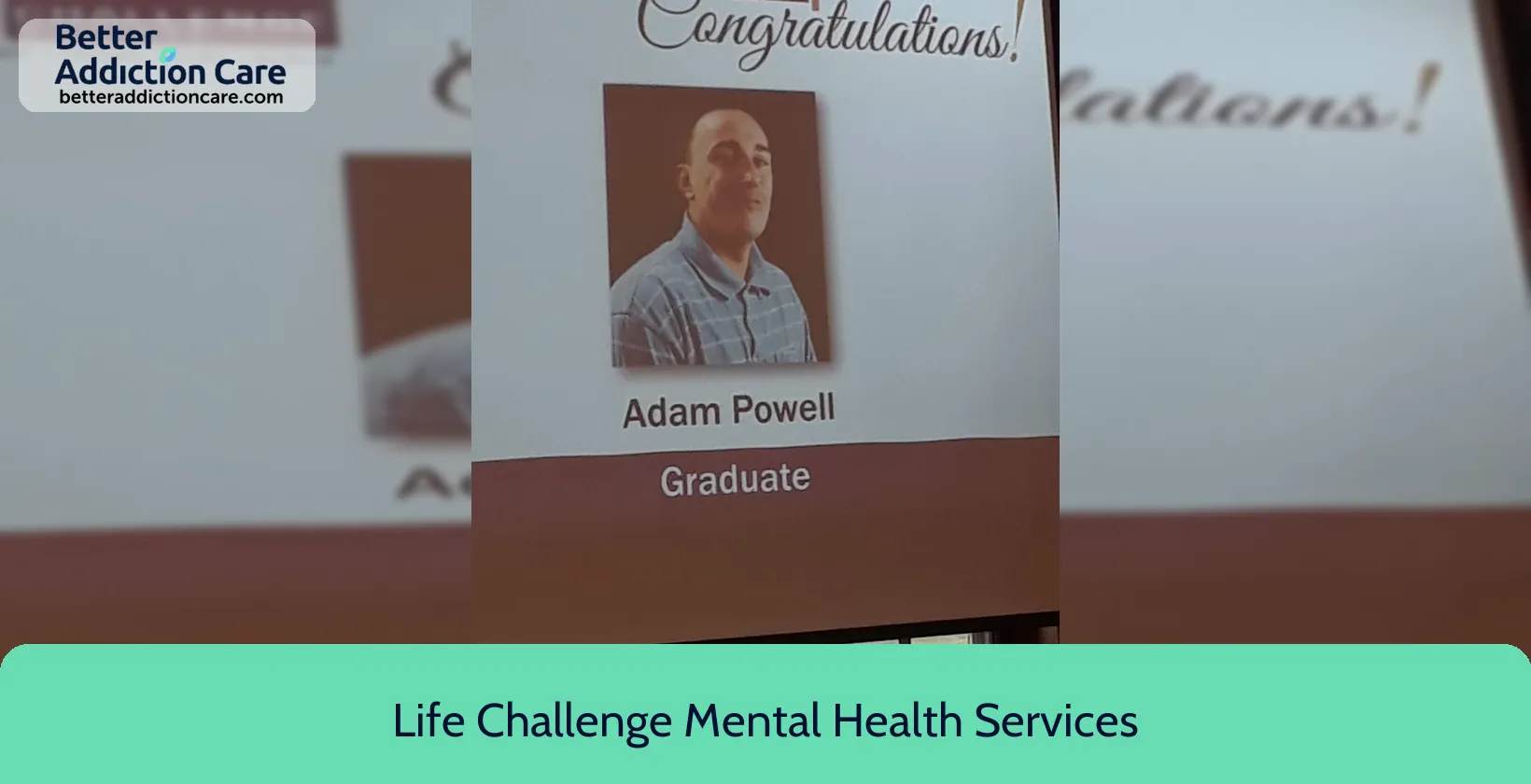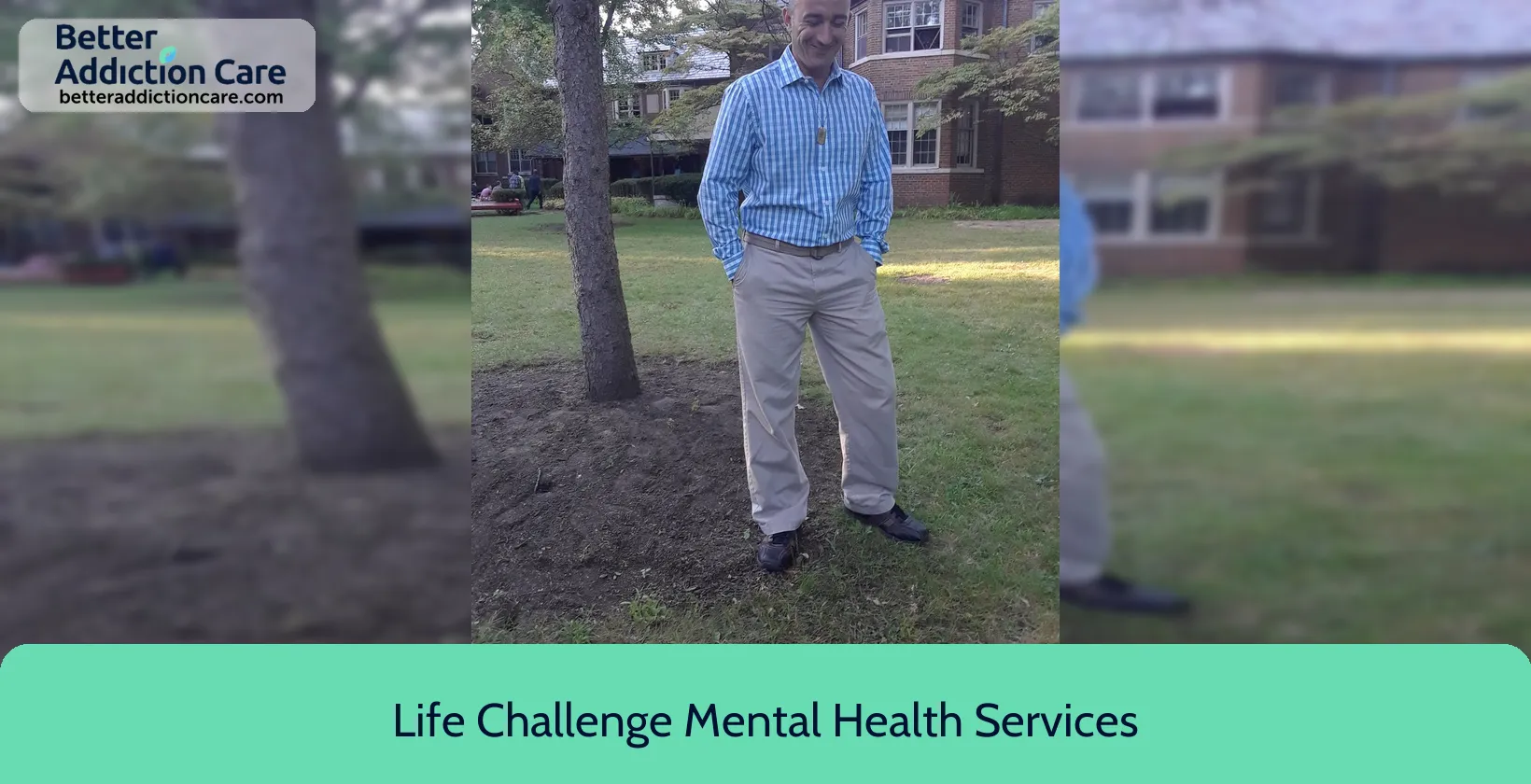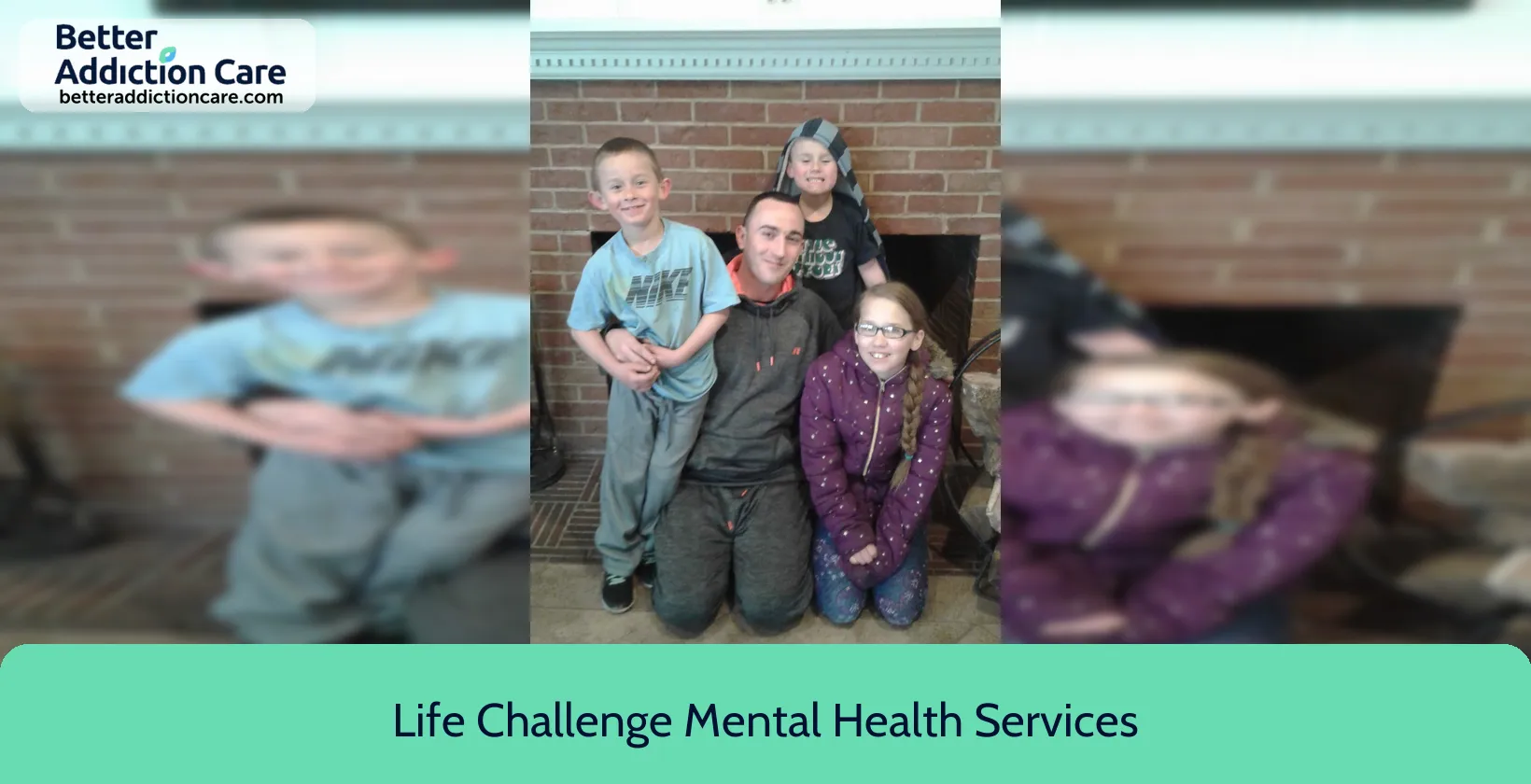Life Challenge Mental Health Services
Overview
Life Challenge Mental Health Services is a mental health treatment center for people seeking treatment near Wayne County. As part of their treatment modalities for recovery, Life Challenge Mental Health Services provides cognitive behavioral therapy, telemedicine/telehealth therapy, and substance use disorder counseling during treatment. Life Challenge Mental Health Services is located in Detroit, Michigan, accepting medicaid for treatment.
Life Challenge Mental Health Services at a Glance
Payment Options
- Medicaid
- Medicare
- Private health insurance
- Cash or self-payment
Assessments
- Screening for tobacco use
- Comprehensive substance use assessment
- Outreach to persons in the community
- Screening for mental disorders
- Screening for substance use
Age Groups
- Seniors or older adults
- Young adults
- Adults
Ancillary Services
- Case management service
- Domestic violence services, including family or partner
Highlights About Life Challenge Mental Health Services
7.02/10
With an overall rating of 7.02/10, this facility has following balanced range of services. Alcohol Rehabilitation: 8.00/10, Drug Rehab and Detox: 6.00/10, Insurance and Payments: 6.00/10, Treatment Options: 8.06/10.-
Treatment Options 8.06
-
Alcohol Rehabilitation 8.00
-
Drug Rehab and Detox 6.00
-
Insurance and Payments 6.00
Treatment At Life Challenge Mental Health Services
Treatment Conditions
- Alcoholism
- Mental health treatment
- Substance use treatment
- Co-occurring Disorders
Care Levels
- Outpatient
- Regular outpatient treatment
- Aftercare
Treatment Modalities
- Cognitive behavioral therapy
- Telemedicine/telehealth therapy
- Substance use disorder counseling
- Trauma-related counseling
- Treatment for gambling disorder
Ancillary Services
Languages
- Sign language services for the deaf and hard of hearing
Additional Services
- Pharmacotherapies administered during treatment
- Mentoring/peer support
- Drug or alcohol urine screening
Special Programs
- Clients with co-occurring mental and substance use disorders
- Veterans
- Members of military families
- Criminal justice (other than DUI/DWI)/Forensic clients
- Clients with HIV or AIDS
Get Help Now
Common Questions About Life Challenge Mental Health Services
Contact Information
Other Facilities in Detroit

7.13

7.16

6.71

6.71

6.99

7.44

7.16

6.92
DISCLAIMER: The facility name, logo and brand are the property and registered trademarks of Life Choices, and are being used for identification and informational purposes only. Use of these names, logos and brands shall not imply endorsement. BetterAddictionCare.com is not affiliated with or sponsored by Life Choices.




